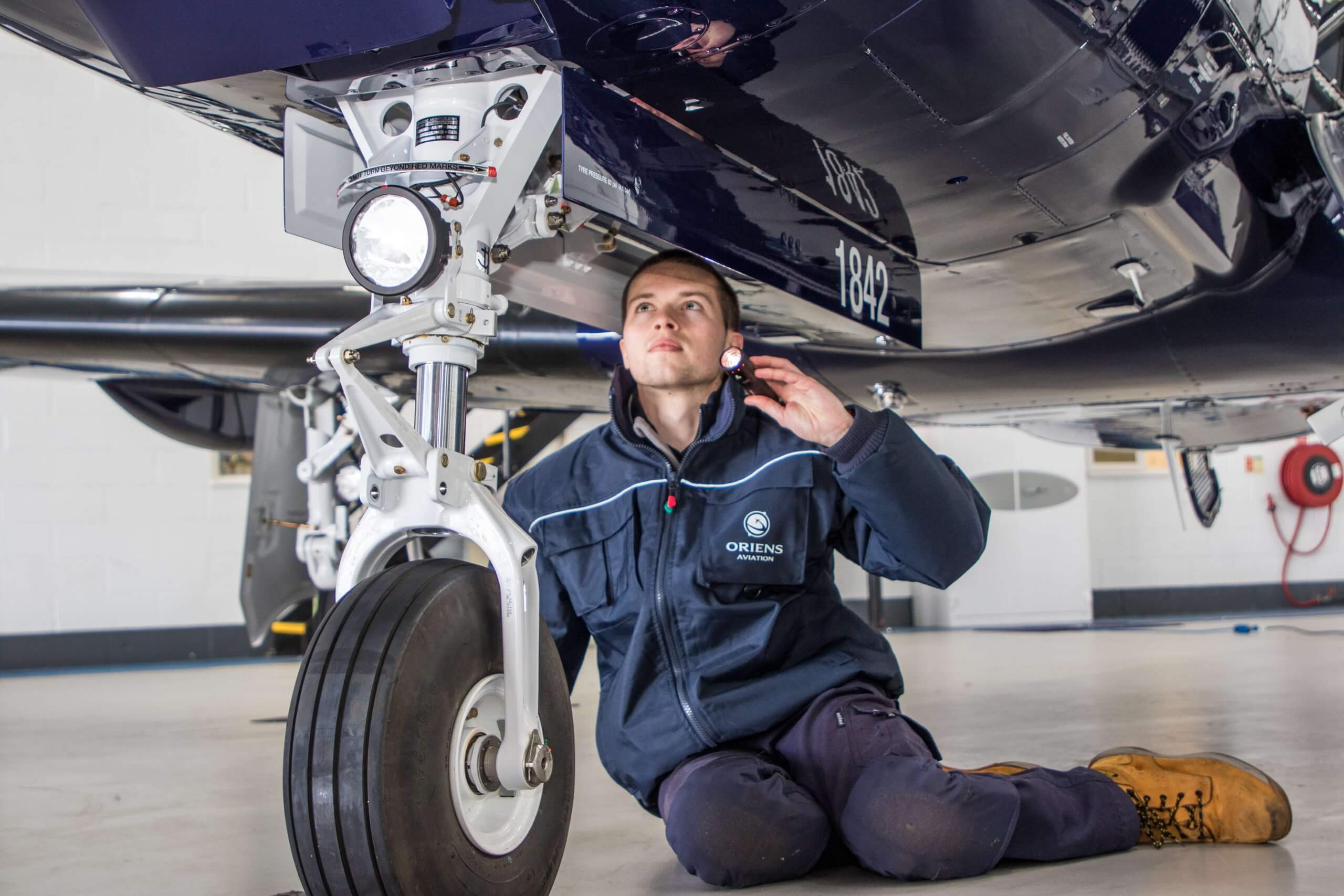Read the latest blog from Stuart Locke
Don’t discount apprenticeship opportunities in business and general aviation
National Apprentice Week 2019 (March 4th to 8th) is an opportune time to entice the next generation to consider a career in aircraft engineering.
We all know about the big airframers and airlines with in-house maintenance organisations. But what about general and business aviation? Air charter operators frequently rely on independent maintenance organisations and having reliable support on the ground is a vital component.
Opportunities right next door?
Engineering students can enjoy the experience of working at local, regional airports, being part of a vibrant community and at Oriens Aviation at London Biggin Hill Airport we have had a very positive experience with young people.
Encouraging a young person with a work experience placement during High School provides valuable experience learning about aircraft, working alongside experienced mentors in a commercial environment.
Degrees and Masters Courses are revered, but the aerospace industry urgently needs vocational skills and competency to replace an aging workforce, as the number of engineers continues to decrease year on year. The people issue is an important issue and one that the British Business General Aviation Association (BBGA) is majoring on at its annual conference this week.
The repercussion is being felt right down the food chain – from airlines with their own inhouse MROs and a fewer number of independents (as a result of consolidation or closure) struggling to secure trained staff to support general aviation and smaller business jets in the UK.
Apprenticeships are excellent in offering a hands-on environment where young people can secure paid employment in a vibrant industry, without having to incur sizeable debts through student loans.
In my previous roles (with Flybe & TAG) I have had the privilege of helping to recruit up to 10-15 engineers per year, as well as helping to stem the flow of movements of engineers to large OEMs and airlines. I’ve also contributed to working groups with the UK CAA, which has identified the engineer shortage problem.
The fact is, we have failed to attract enough new engineering talent though the industry, especially in the commercial airliner sector, now greatly enhanced and with new generation aircraft less complex to work on.
Business and GA playing their part
So what more can we do? Apprenticeships will for sure play a big part, but we can do more by reaching out to young people in schools and offering them taster days and short-term placements, alongside their studies.
By reaching them aged 13 and 14, before they even chose their GCSE options, we can open their eyes to a rewarding career in aircraft engineering. Work experience such as this will provide a career path and direction for many capable students who hadn’t previously considered a career in aviation.
We can also develop closer links with some of our excellent technical colleges who are now offering superb aeronautical engineering courses such as the BTEC Extended Diploma. The more we can do to forge such links, the greater the chance of enticing new talent.
Entrepreneurial companies like ours take pride in in providing quality and personal service to our customers. With our Authorised Service Centre for the Pilatus family of aircraft, we have supported young people through work experience placements. We benefit from their enthusiasm and talent too.
Recognising the value this delivers to the aviation industry as a whole and to the local community, Oriens is looking forward to taking on another work experience student in 2019.
As featured in aerosociety.com
Stuart Locke, General Manager for Aircraft Maintenance
Oriens Aviation

#oriensaviation
Share this and join the conversation.



